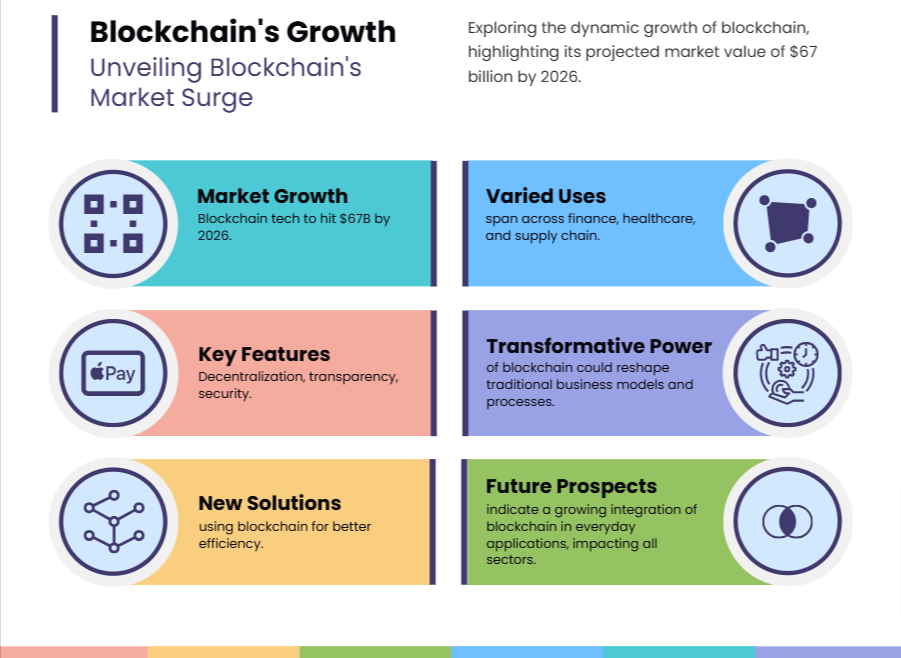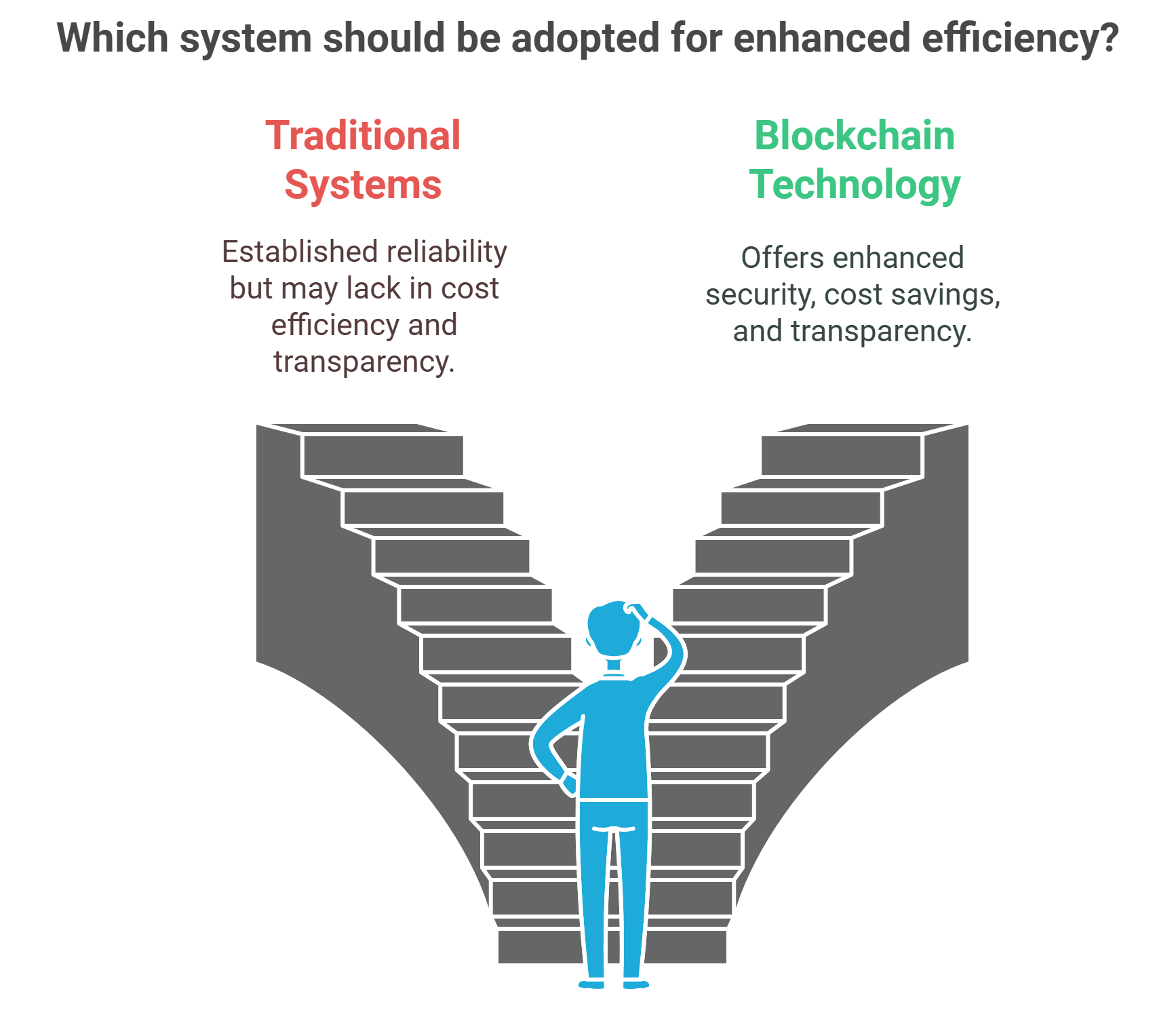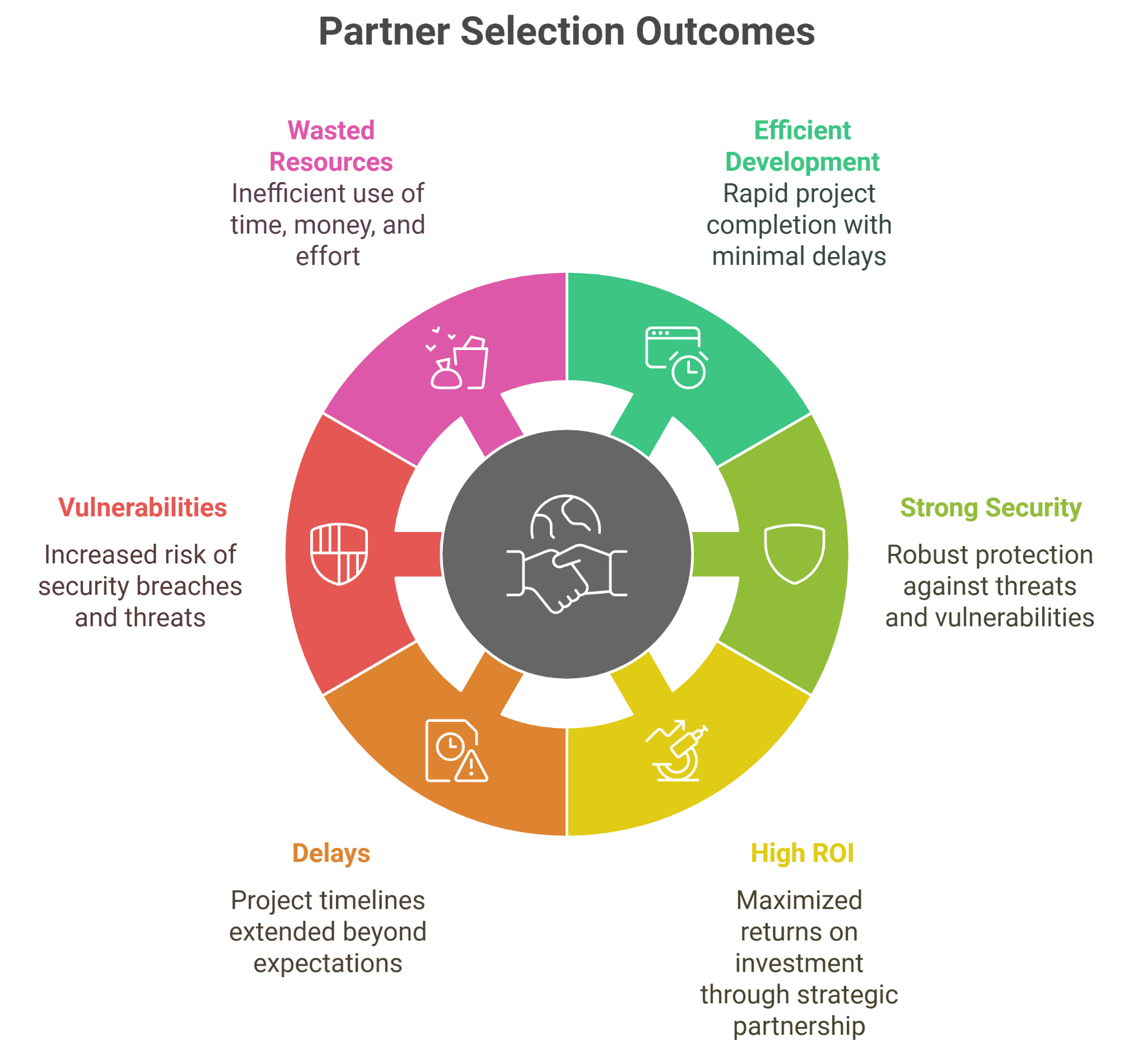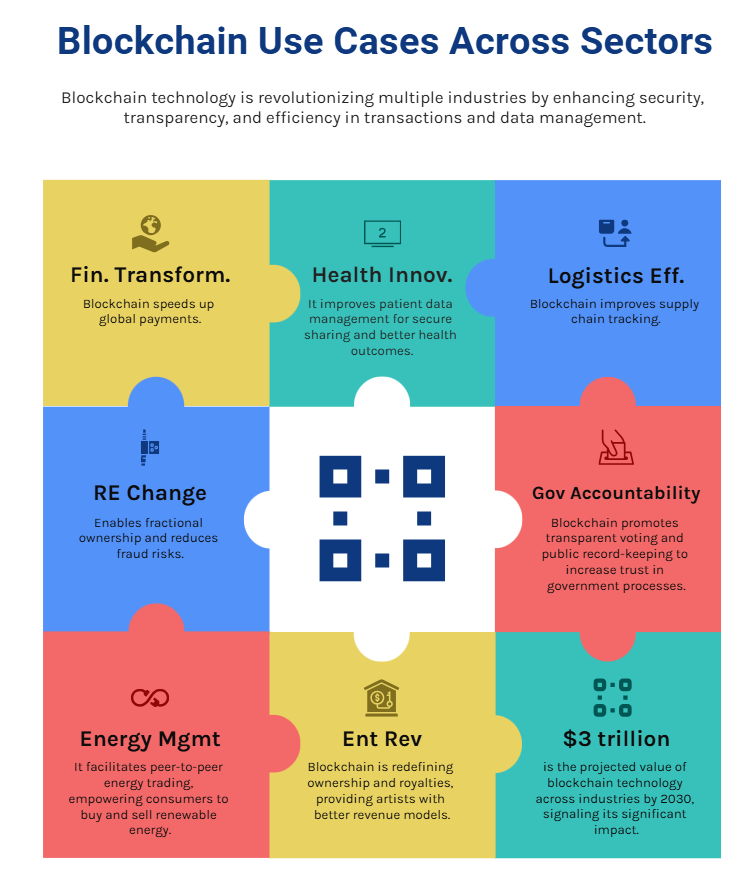Introduction
Do you know that over the course of 2026, more than $67 billion in business will be created using blockchain technology? According to a report from MarketsandMarkets, the global blockchain market size is projected to grow from USD 20.1 billion in 2024 to USD 248.9 billion by 2029.

Blockchain is transforming industries like finance, healthcare, supply chain, and thousands more as it reaches its transformative potential. In the United States, businesses of all sizes are using blockchain development services to secure transactions, improve transparency, and stay competitive in an increasingly digital economy.
But here’s the catch: adopting blockchain technology isn’t just about jumping on the bandwagon—it’s about finding the right blockchain development partner who can tailor solutions to your unique business needs.
What is Blockchain Development?
At its core, blockchain development services refer to designing, building, and implementing decentralized systems that store data securely and transparently. This technology is a widespread application into applications such as smart contracts, Dapps, blockchain wallets, and tokenization platforms. Its versatility has made it indispensable in sectors such as:
- Finance: Faster cross-border payments and secure digital transactions.
- Healthcare: Patient data privacy and interoperability.
- Supply Chain: Increase traceability and minimize fraud in logistics.
- Retail: Enabling transparent e-commerce operations through blockchain integration services.
Why This Guide?
It is overwhelming navigating the blockchain development landscape in the USA. There are plenty of providers that say they are experts. How do you know who is right for your business? In this guide, we will take a deep dive into the key considerations, industry trends, and actionable tips that will help you make an informed decision about choosing a Blockchain development service provider.
What is Blockchain Development?
Before diving deep into blockchain development, we first need to understand what makes the technology operate. Blockchain may sound confusing to most who do not understand the concept and how it functions, so let’s dive into what blockchain technology is and how it is a key feature in the ecosystem.
What is Blockchain Technology?
When thinking of blockchain, imagine a decentralized, digital ledger — a system in which data, like transactions, is recorded and shared across many computers (nodes) but securely. Whereas databases are traditionally opaque and immutable, blockchain ensures transparency and immutability; once information is added, it cannot be changed. It builds up an environment of trust without intermediaries.
Blockchain, for example, can keep track of where a product goes, in a supply chain from manufacturer to consumer, guaranteeing authenticity and responsible use. The principle applies to essentially every industry – from healthcare to retail.
How Does Blockchain Development Work?
Blockchain development is concerned with making use of the power of this technology in developing systems and applications. Here’s a quick look at its core elements:
- Smart Contract Development: Automatically running programs when certain conditions are fulfilled, suits well to automation of agreements such as escrow services or insurance claims.
- Decentralized Applications (dApps): These are the applications that mainly used in blockchain networks which can run applications on blockchain networks with more security and transparency, most often in the context of finance, gaming or healthcare.
- Tokenization: Making real-world assets such as property or art easier to own and easier to invest in as digital tokens.
- Blockchain Architecture Design: Defining the nanoscopic details of the blockchain’s underpinnings that allow the business to achieve individual goals.
Technologies Powering Blockchain Development
Modern blockchain solutions rely on robust tools and platforms like:
- Ethereum: It’s known for its smart contract functionality and huge developer ecosystem.
- Hyperledger: A modular framework ideal for enterprise blockchain development.
- Solana: Designed for high-speed and low-cost transactions, popular in dApp development and blockchain game development.
What Blockchain Means to Your Business

Unlike the trend of adopting blockchain, adopting blockchain isn’t just something — in fact, it’s a strategic advantage. Here’s how it benefits businesses:
- Enhanced Security: The data is encrypted and distributed, thus making it an incredibly secure entity from hackers’ or breaches.
- Cost Efficiency: Businesses are able to save on operational costs as well as on transaction costs by [removed intermediaries].
- Greater Transparency: Clients and stakeholders are built trust as every transaction is traceable and verifiable.
- New Business Models: Blockchain democratizes innovation in every domain, from supply chain optimization to real estate tokenization.
For example, in healthcare, blockchain development services for the healthcare industry are helping hospitals securely manage patient data and streamline processes. Similarly, blockchain development for supply chain optimization ensures better tracking and reduces fraud in logistics.
Why Choosing the Right Blockchain Development Partner is Critical

One of the most crucial factors in selecting the right blockchain development partner is their expertise. On the next page, we’ll take a look at why having deep expert domain knowledge and technical skill are absolutely crucial to ensure a project’s success.
Expertise Matters
Blockchain development USA is a specialized field, and finding a partner with the right expertise can make all the difference. This technology is far from a one-size-fits-all solution—it requires in-depth knowledge of industry-specific challenges and tailored blockchain solutions for businesses.
For example, blockchain development for the legal industry in the USA requires a firm grasp of data confidentiality and compliance regulations, while blockchain solutions for retail e-commerce in the USA focus on supply chain transparency and secure payment systems.
An experienced partner will:
- Understand your business goals and your landscape.
- Suggest the best matching technologies to go for (such as Ethereum for smart contracts and Hyperledger for enterprise solutions).
- Safeguard seamless placement within your existing systems.
Risk of Poor Implementation
Suppose you chose the wrong partner: that’s not just a setback; it’s the death of the project. Inefficient development or poorly designed solutions can lead to:
- Operational Delays: If your partner lacks enough skills or resources that can efficiently execute, complex projects might gong on.
- Security Vulnerabilities: If your blockchain application doesn’t abide by adequate coding practices, it will leave it open to cyberattacks.
- Poor ROI: A subpar solution does not honor its promise; it does not deliver promised benefits, which wastes time and money.
Say you’re launching a blockchain wallet development service with bugs all over the place — your users might complain, their data might get lost, or your reputation might get tainted.
The Value of a Long-Term Partnership
And blockchain is not a set-it-and-forget-it technology. The blockchain solution your business uses must continuously evolve as it evolves. A reliable blockchain development company in the US/Canada will:
- Provide ongoing support and maintenance in order to make your solution secure and efficient.
- Accelerate growth in processing data and the number of transactions.
- Keep future updates so that we are in agreement with industry changes.
Think of your blockchain development partner as a long-term collaborator rather than a one-time contractor. Whether you need smart contract development for new business models or enterprise blockchain development to scale operations, your partner should be there every step of the way.
Which Industries will Benefit from Blockchain Development?

Blockchain solutions for businesses are revolutionizing various industries by enhancing efficiency, transparency, and security. Here’s how it’s transforming key sectors:
1. Finance: Payments and Investing, Revolutionized
Blockchain is changing the way financial transactions are done – securely, cost-effectively, and efficiently.
- Secure Payments and Cross-Border Transactions: Blockchain removes institutions such as banks, reducing costs and shortening international transactions. (Example: Low-cost, fast cross-border payments offered by Ripple (XRP) offer a viable alternative to systems like SWIFT.)
- Smart Contracts: These automate predefined terms, reducing errors and fraud. (Example: In Decentralized Finance (DeFi), these services provided through lending or borrowing or trading are done without the banks through the use of smart contracts.)
- Decentralized Finance (DeFi): Blockchain powered platforms delivers traditional banking services at a minimal fee and with high level of transparency.
- Investment Transparency: Security tokens based on real-world assets can be realized via blockchain and fractional ownership with greater scope. (Example: Security Token Offerings (STOs) simplify investment in assets like real estate or startups.)
2. Healthcare: Supply Chain Transparency & Blockchain for Patient Data Management
Healthcare companies use blockchain for better data security and operation transparency.
- Patient Data Management: Blockchain guarantees the secure, immutable, and real-time sharing of patient data. (Example: Patients can now control and share their medical records securely within and across institutions, thanks to MedRec.)
- Medical Supply Chain Transparency: The blockchain shadows pharmaceuticals from manufacture to distribution so as to prevent counterfeits. (Example: Shipments of pharmaceuticals are guaranteed to have proper conditions for safe delivery monitored by Modum.)
- Smart Contracts for Insurance: It eliminates delays and errors in claims processing.
3. Supply Chain and Logistics: Optimizing Efficiency and Reducing Fraud
Blockchain gives you real-time visibility and traceback of supply chains.
- Product Tracking: When it comes to traceability, blockchain enhances authentication and guarantees end to end traceablility through its decentralized ledger. (Example: With IBM Food Trust consumers can see exactly what’s on a product’s path from farm all the way to their table.)
- Fraud Prevention: However, blockchain has its counterfeiting roots. (Example: Everledger measures the ‘chain of custody’ of diamonds from the mine to the market to authenticate their origin and minimize the sale of conflict diamonds.)
- Streamlined Logistics: Smart contracts automate customs clearance and documentation and aim to reduce delays.
4. Real Estate: Tokenization and Simplified Transactions
Real estate investment has been democratized, and the inefficiencies in property transactions have been reduced using blockchain.
- Tokenization of Assets: With blockchain, the real estate is made fractional and made available to a broader audience. (Example: RealT tokenizes properties into individual digital tokens, allowing people to invest in real estate through digital tokens.)
- Smart Contracts for Transactions: Thinking about automated contracts helps you reduce paperwork and speed up property deals. (Example: Using blockchain technology, Propy helps facilitate cross-border transactions.)
- Fraud Prevention: Immutable records make ownership verification simple and increase transparency.
5. Legal and Compliance: Efficient Contract Management and Audit Trails
Blockchain is used to improve contract execution, identity verification, and regulatory compliance.
- Smart Contracts: Self-executing contracts eliminate reliance on intermediaries. (Example: It automates the process of creating and executing contracts using the blockchain.)
- Identity Verification: By securely storing and sharing customer identities, blockchain helps streamline KYC processes. (Example: Civic provides tamper-proof and accessible identity management.)
- Audit Trails for Compliance: Immutable records are easier to keep compliant with regulations.
6. Retail and E-Commerce: Enhancing Transparency and Payments
Blockchain is being adopted by retailers for product authentication, secure payments, and loyalty programs.
- Product Authentication: With blockchain, customers can verify product origins to curb counterfeit goods. (Example: Companies, such as Walmart, rely on VeChain to maintain product authenticity.)
- Secure Payments: The fastest, frictionless, and cheap forms of payment are provided by cryptocurrencies. (Example: E-commerce platforms accept Lite coin and Bitcoin for secure transactions.)
- Loyalty Programs: Rewards programs across multiple platforms are simple to streamline with blockchain. (Example: Loyyal helps its customers earn and redeem rewards from multiple businesses.)
Types of Blockchain Development Services Offered by Companies in the USA
Among the various blockchain development services, custom Blockchain in software development is far from a one-size-fits-all solution—it requires in-depth knowledge of industry-specific challenges and tailored solutions to effectively integrate decentralized systems into business operations.
In this case, let’s see how this service can facilitate building a blockchain system dedicated to your objectives.
Custom Blockchain Development
Tailored blockchain solutions are to the business needs: they are used for creating private or permissioned, or public blockchain networks. For enterprises requiring custom functionalities that cannot be done by other solutions like secure data sharing, supply chain tracking and custom payments, these are the best options.
Example: “The immutable record that a blockchain offers can streamline operations, increase trust with stakeholders, and raise efficiency in your business process.”
Smart Contract Development
Smart contract development is a key offering in the world of blockchain solutions, enabling secure, automated, and transparent transactions. That removes intermediaries and enables faster, tamper-proof transactions. They are essentially used in finance and real estate and also in supply chain industries.
Example: Secure smart contracts for automating agreements, transactions, and workflows to minimize delay and reduce operational costs.
dApp Development
Find a trusted leading dApp development company, that specialize in creating decentralized applications (dApps) that operate on a blockchain network, offering transparency, enhanced security, and reduced dependence on central authorities. dApps are transforming the way digital app platforms run from DeFi platforms to NFT marketplaces.
Example: Using a decentralized platform, dApps allows users to create applications in a secure and transparent way, where users retain control over their data and are no longer dependent on centralized servers.
Blockchain Consulting
Blockchain integration services guide businesses in leveraging blockchain to solve their challenges and ensure seamless system integration. Blockchain consulting firms review your expectations and opportunities and offer you their best strategies for implementing your desired blockchain.
Example: “Just as a blockchain consultant can help you navigate the online jungle, he can give you perspective on whether a public or private blockchain is a better fit for your business interests.”
Blockchain Integration
Integration services connect blockchain and your existing systems like CRM, ERP, and financial platforms. That guarantees the data exchange is seamless as well as reduces the necessity of having overhauled your IT infrastructure.
Example: Combined with your system, this allows you to integrate blockchain and real-time tracking, transparency, and automation without disrupting your workflow.
Tokenization Services
Tokenization Services USA unlocks new revenue streams by converting real-world assets like real estate, art, or commodities into digital tokens that can be traded on a blockchain. It opens up new revenue streams through fractional ownership and liquidity.
Example: Tokenization allows you to divide a luxury property into tradable digital tokens, opening access to investors around the globe and enhancing the liquidity of properties otherwise in illiquid markets.
Key Factors Affecting Blockchain Development Costs
It is important to understand how growth and complexity of your blockchain project will affect development costs. In this post, we’ll look at some important aspects that gives you the ability to estimate and manage these costs effectively.
Project Complexity and Scope
The complexity and scope of the blockchain application development project significantly influence development costs. Even more, custom solutions, decentralized applications (dApps), or tokenization platforms are usually more expensive because their nature is intricate.
Example: Building a barebone private blockchain to use internally will be cheaper than a blockchain based supply chain management with real time tracking and smart contracts.
Blockchain Technology Stack
Cost is affected by which platform is chosen to develop, such as Ethereum, Hyperledger, or Solana. The price can go up, too if specialized expertise for specific platforms is required.
Example: Hyperledger projects concern permissioned networks, and Ethereum-based applications need advanced smart contract expertise.
Integration with Existing Systems
It shouldn’t be surprising — the integration of blockchain with existing enterprise software, such as CRM or ERP, can be complex, necessitating compatibility checks, data migration, and custom API development.
Example: The integration of blockchain with an inventory management system leads to increased both the scope and the cost.
Development Team & Location
Team Size and Expertise:
It depends on the skills of a team, from the blockchain architects to junior devs. Higher rates are commanded by experienced teams.
Example: But the premium price charged by a proven team with DeFi experience in development means they’re excellent in what they do and do it well.
Geographical Location of Developers:
The costs depend on the developers’ locations. If you’re in the USA or within Western Europe, teams will typically charge a higher rate than in Eastern Europe or Asia.
Example: A firm developing blockchain in San Francisco might be charging $150-$250/hour while a similar firm in Eastern Europe may charge a nominal $60-$120/hour.
Development Team & Location
- Team Size and Expertise:
- Depending on the amount of blockchain developers involved, whether they are experienced or less, and the project timeline, the cost depends. Higher rates are commanded more by more experienced developers.
- Example: Though at a premium price, hiring a blockchain development agency that has solid experience working in DeFi development means quality and experience.
- Geographical Location of Developers:
- Costs depend on the location of your development team. Rates vary between developers in USA, Canada or Western Europe and developers from Eastern Europe, Asia or Africa.
- Example: A San Francisco based blockchain development firm might charge $150-$250 per hour, however a firm in Eastern Europe may only bill $60-$120 per hour for the same project.
Blockchain Development Models (Fixed-Price vs. Hourly)
- Fixed-Price Model:
- Works well for well defined projects with a clear objective, deliverables and timeline. Based on the project needs, the development cost is set in advance. (Example: In this case, a custom blockchain solution with predefined features (such as a tokenization platform for real estate) has a fixed price.)
- Hourly Billing Model:
- Used for more flexible, more iterative projects where the scope may change over the course of this work. This model is suitable for projects on which changes are often required, or testing is necessary. (Example: Creating a blockchain based application in which we can add more features as per the user’s feedback and functionality can change regularly.)
Additional Costs to Consider
- Maintenance & Support:
- Once a blockchain project is launched, you will need to spend time maintaining and supporting it, i.e., continuous updates, security patches, and, in some cases, improvements to scalability. (Example: On going maintenance of a project could cost anywhere from 15 to 20% per year from the initial development cost.)
- Security Audits:
- With financial or sensitive data, blockchain applications need extremely strong testing of security to prevent against any breaches of the blockchain. (Example: The cost of a security audit for a DeFi application built on top of smart contracts varies significantly from $10,000 to $50,000, depending on the contract’s complexity.)
- Regulatory Compliance:
- However, regional and industry-specific regulations must be passed (e.g., GDPR, HIPAA, FINRA) with blockchain solutions as many times. This also imposes development costs such as compliance measures. (Example: Developers of a healthcare blockchain application that needs to integrate privacy controls may need to devote some amount of time and experience to bring the system into compliance with HIPAA.)
Key Factors to Consider When Choosing a Blockchain Development Partner
When selecting a blockchain development partner, understanding their industry experience and specialized expertise is crucial to ensure they can deliver tailored blockchain solutions for businesses. Now, let’s look at how this factor will influence your choice.
Industry Experience & Expertise
To solve specific pain points, you can have a seasoned partner with tried and tested experience in your industry.
Why It Matters: It is good to know that generalists may also have the bandwidth to think about customer expectations and bounce back from projects, even though experienced firms generally understand regulatory compliance and operational workflows better.
Example: “Having a partner with healthcare blockchain experience means the protection of HIPAA compliance while maximizing the security of patient data and interoperability.”
Technical Skills & Proficiency
Your blockchain development company US/Canada should have expertise in multiple platforms such as Ethereum, Hyperledger, Polkadot, and Solana, ensuring the best fit for your project. They should also shine at writing secure smart contracts and writing dApps that are scalable.
Example: “If your project is related to DeFi, take a partner who is a smart contract craft and integrates third-party API flawlessly.”
Project Management & Communication
With effective project management, quality is not compromised for on-time delivery. By being transparent, you are keeping in the loop and avoiding scope creep.
Example: “Agile methodologies facilitates an iterative development — you can have feedback on every step to the solution optimized for your needs.”
Security & Compliance
In areas such as finance or the healthcare industry, blockchain security is key! In order for the team to balance such expertise, they must clearly understand secure programming practices, cryptography protocols and be familiar with local and industry regulatory body such as GDPR, HIPAA and FINRA.
Example: “Your smart contract can leveraged against vulnerabilities by a development partner with experience in cryptographic algorithms, securing data integrity as a result.”
Reputation and Reviews
There are many businesses that will showcase their client success stories, case studies, and testimonials. Additional indicators of credibility are looked for awards, certifications, or recognitions.
Example: “Having a partner that accepts working with the top tech organizations can ensure that their work is done well and greatly by someone verified.”
Support & Maintenance
Blockchain solutions need on going updates, scaling enhancements and support for bugs or performance issues. Make sure your partner gives you good post launch support.
Example: “Not only does a reliable partner build your blockchain solution but also it helps to grow with your business with continuous updates and maintenance services.”
Questions to Ask a Potential Blockchain Development Company
Before you commit to a potential blockchain development company, the questions to ask will let you assess their ability and determine if they are a good match for your project’s requirements. You will go through this critical assessment with the following questions:
General Questions
- “What blockchain technologies and platforms do you specialize in for blockchain software development?”
- “Can you share case studies or examples of blockchain solutions for healthcare or finance projects you’ve completed?”
- “How do we ensure we safeguard our blockchain solutions?”
- “What industries have you worked with, and do you have expertise in sectors such as blockchain development for finance, healthcare, or blockchain game development?”
Project-Specific Questions
- “How long should it take, and how are delays or unexpected difficulties handled?”
- “So, how do you ensure scalability and system flexibility in future updates?”
- “How will we integrate blockchain in your existing systems, and how will you tackle compatibility issues?”
- “What is the sweet spot for customization with best practices?”
Post-Launch Support Questions
- “What type of post-launch maintenance and upgrade do you offer?”
- “Do you provide training to internal teams to self-manage blockchain systems?”
- “What do you do when blockchain protocols upgrade or new compliance regulations appear?”
- “Does it take you a typical amount of time to work out critical system issues?”
Through asking these questions, businesses can figure out whether the partner in question has the expertise and reliability and whether they are aligned with what the business’s project needs.
Conclusion
Selecting the right blockchain development partner is critical to the success of your project. A good partner will possess deep industry expertise, high technical prowness, comprehensive security practices and post launch support. They will further validate that they can quickly deliver tailored blockchain solutions to fit your business goals and offer extra bonus of reputation, portfolio, and their client testimonials will help validate this.
Blockchain solutions for businesses are reshaping industries with their potential to streamline processes, enhance transparency, and create new opportunities. A key to future success lies in choosing a partner who can take you from vision to execution with room for creativity and innovation and the ability to keep you on track.
The power of blockchain is now yours for the taking, so why wait? To get started, consult with a trusted blockchain development firm like BCBT today. We will help you discover a range of possibilities, choose the perfect solutions, and finally bring your concept to pass.
Contact us now as your leading blockchain development partner and take the first step toward innovation and growth! If you need to hire blockchain developers in the USA, we can provide the expertise and support you need.
FAQs:
What is blockchain development?
Blockchain development refers to writing decentralized applications (dApps) and smart contracts along with blockchain-based platforms via blockchain technology.
Why use blockchain technology for businesses?
With its ability to offer greater security, transparency, and efficiency, Blockchain is an appealing solution for sectors like finance, supply chain, healthcare, and beyond.
What types of blockchain development services do companies offer?
Services include custom blockchain development, smart contract development, dApp development, blockchain consulting, and tokenization.
What industries can benefit from blockchain development?
Finance and health care, logistics and real estate, retail business and legal sectors are to benefit from blockchain technology.
Can blockchain technology integrate with existing business systems?
Yes, a blockchain solution can be integrated with existing ERP, CRM, and other business systems. Nonetheless, it may take professionalism in terms of blockchain and traditional systems getting integrated.
How much does blockchain development cost?
The cost varies based on considerations like project complexity, blockchain platform, developer expertise, and the solution scope. A project related to blockchain may cost between $10,000 and over $500,000.
How do I choose the right blockchain development partner?
Choose an industry-specific professional with technical knowledge and has a strong portfolio with documented experience in project implementations and post-implementation support.














